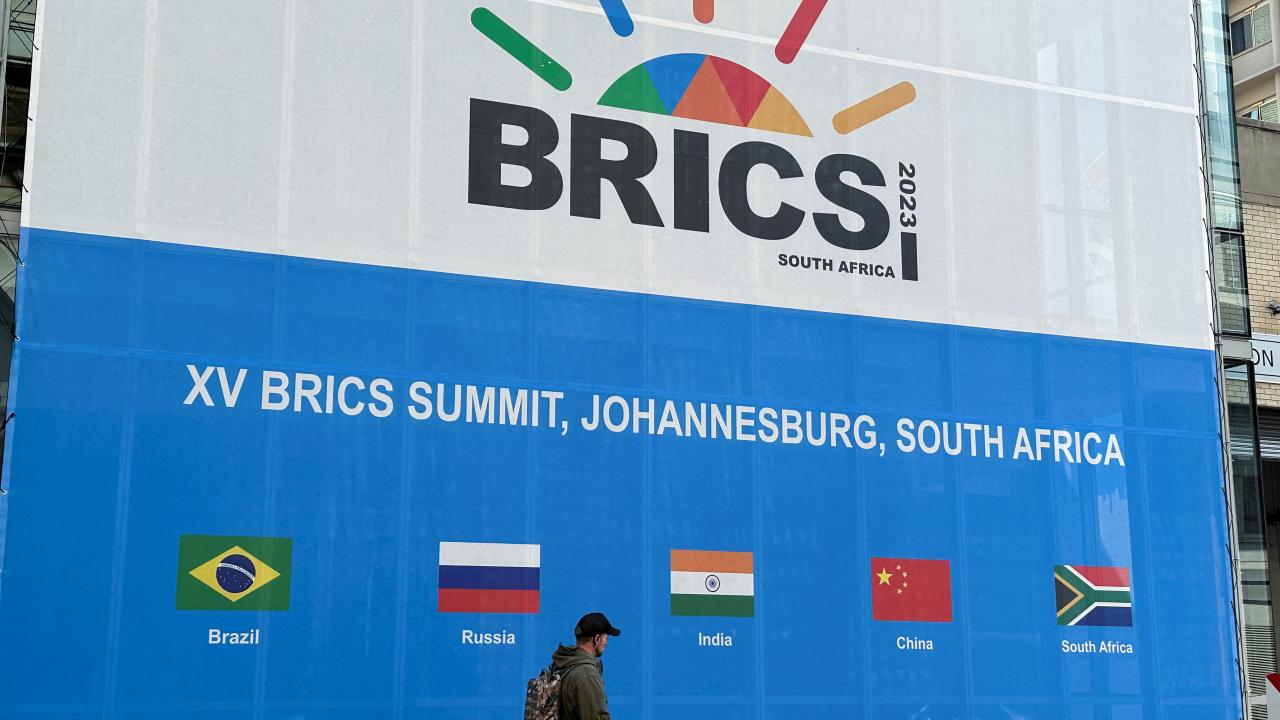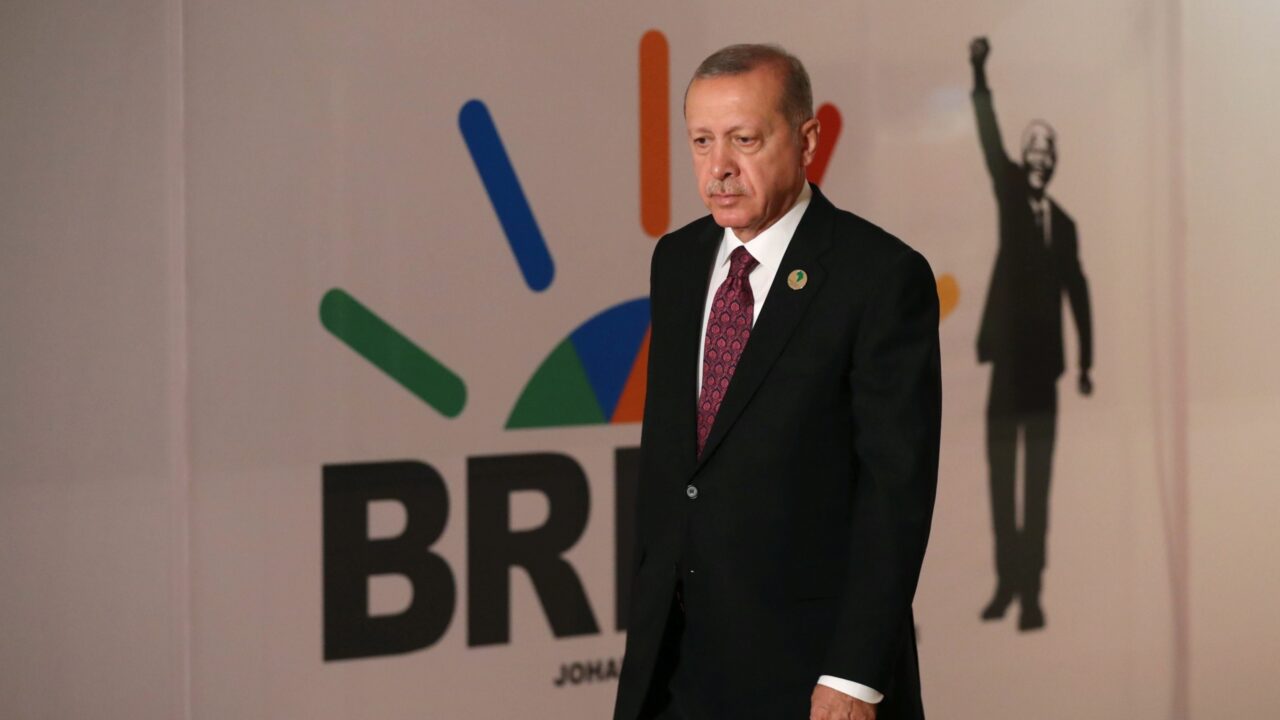Russia proposes expanding BRICS with partner country model
 South African delegates sit behind a glass with BRICS logo as the BRICS summit is held in Johannesburg, South Africa August 23, 2023. (Reuters/Alet Pretorius)
South African delegates sit behind a glass with BRICS logo as the BRICS summit is held in Johannesburg, South Africa August 23, 2023. (Reuters/Alet Pretorius)
The Kremlin believes that the BRICS group could expand further by creating a new category for “partner countries,” according to Yury Ushakov, a Russian presidential aide. This approach is seen as a practical way to manage the expansion of BRICS following the bloc’s recent growth at the South African summit, Ushakov told reporters on Thursday.
BRICS expansion strategy
Russia suggests that the “partner country” model would allow for a more structured and gradual inclusion of new members.” At the present time, we believe it would be more convenient to engage new members through the partner country category,” Ushakov said.
Moscow is considering which countries could be prioritized for this category, with an emphasis on Commonwealth of Independent States (CIS) nations and key global players such as Indonesia, which Ushakov described as a leading Muslim country with significant influence.

Debate over further expansion
While BRICS leaders are open to the idea of growth, Ushakov noted that there is no full consensus among current members about continued expansion. Some countries advocate pausing at ten members, while others push for admitting more. These discussions are expected to continue at the upcoming BRICS summit in Kazan.

Partner country modalities to be discussed
Ushakov said the modalities of the partner country category will be worked out before the summit, allowing BRICS leadership to discuss specific candidates for inclusion.
BRICS, which currently includes Brazil, Russia, India, China, and South Africa, has seen increasing interest from other nations. According to Ushakov, 34 countries are seeking either full membership or a partnership role within the group.

What is BRICS?
Brazil, Russia, India, China, and South Africa comprise the BRICS economic and political coalition. The group expanded to include Iran, Saudi Arabia, Egypt, the UAE, and Ethiopia starting in January 2024, bringing the total number of members to 10.
The objective of BRICS is to promote political dialogue and economic cooperation among significant emerging economies. The BRICS countries collectively have a population of 3.4 billion and a landmass of 45 million square kilometers.
Türkiye’s interest in becoming a member of BRICS is motivated by both economic and strategic factors. The nation endeavors to mitigate economic burdens imposed by Western sanctions and investigate potential avenues for collaboration.
- Economic benefits: BRICS membership could provide Türkiye with access to institutions like the New Development Bank (NDB), which finances infrastructure and sustainable development projects in developing countries. This could be a valuable resource for Türkiye’s large projects.
- Strategic alliances: Joining BRICS would provide Türkiye with opportunities to forge new international alliances and strengthen relationships, particularly with countries like Iran and Russia. This move is part of Türkiye’s broader strategy to expand its influence on the global stage.
- Relations with the EU: Türkiye’s potential BRICS membership is seen as a complement to, rather than an alternative to, its existing commitments, such as its Customs Union with the European Union. Türkiye is expected to maintain its obligations to the E.U. while pursuing a BRICS membership.



